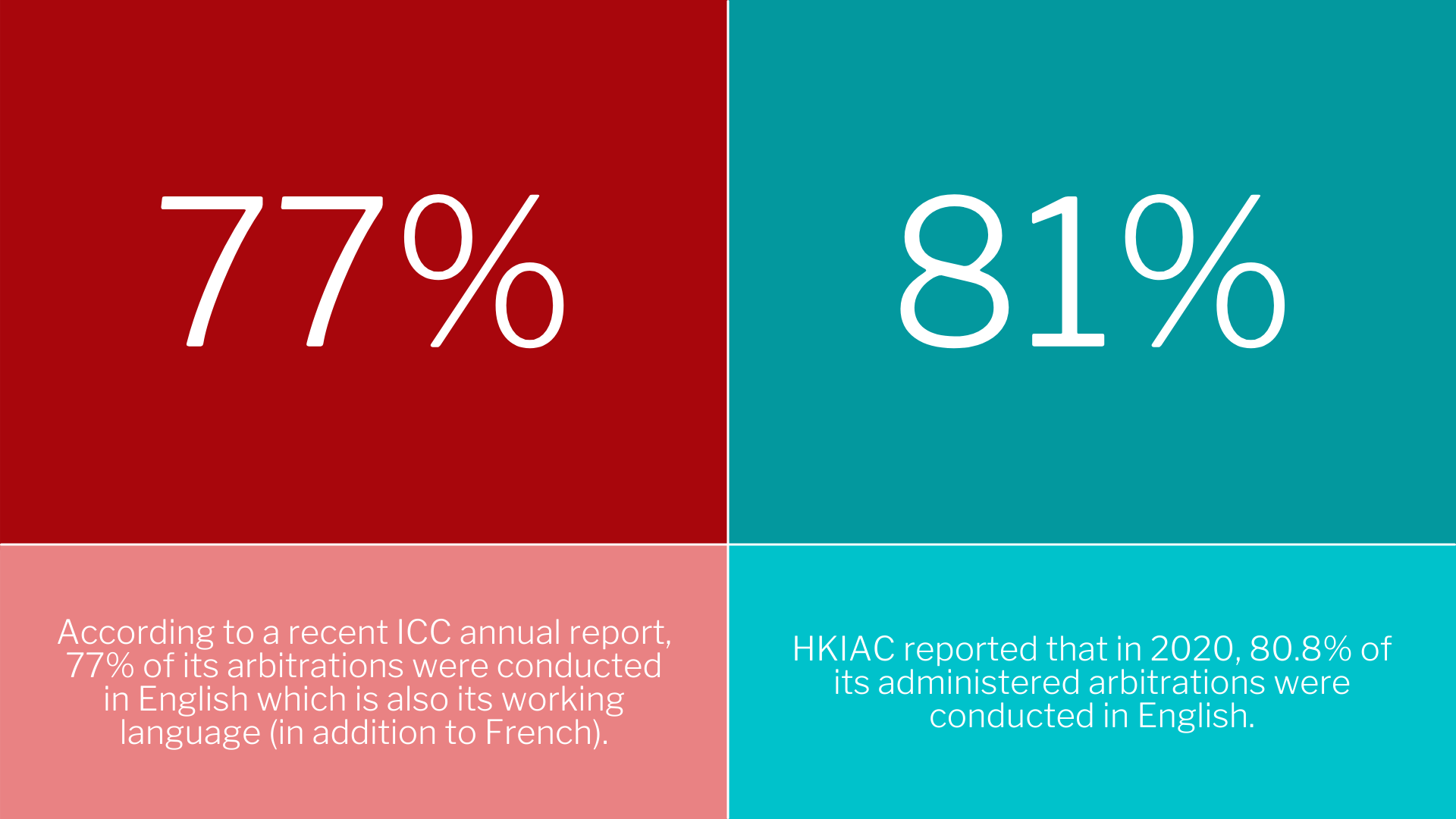MASTER CLASS: INTERNATIONAL ARBITRATION SKILLS
M:POWER's Master Class: International Arbitration Skills offers Italian litigators an invaluable learning experience. Using our deep industry experiences and collective expertise in the disciplines of communication and international litigation, we have developed a unique Master Class experience that will enable attorneys practicing international arbitration to improve their core litigation skills in a concentrated period of time. Crediti formativi (12 credits).

To represent clients successfully in international arbitrations, attorneys must be persuasive communicators and they must have the skills to present their cases before international tribunals. English remains the dominant working language of the global marketplace. Lawyers and other business professionals who represent and/or interact with international clients and companies must be fluent not only in English – but legal English.
English continues to be the predominate language used to conduct international arbitrations.
The International Chamber of Commerce, (ICC), headquartered in Paris and the Hong Kong International Arbitration Centre (HKIAC) are two of the world’s most preferred and most used international arbitration tribunals.

Accordingly, lawyers must have the ability to communicate effectively with Legal English. For this reason, our curriculum is focused on helping students develop the critical tools of persuasion.
"The process of international arbitrations is adversarial in nature. Thus, lawyers must have the presentation skills that are essential for the adversarial system of dispute resolution. For example, lawyers must know how to prepare and present an opening statement and oral argument on legal and factual matters before the tribunal. They must have the ability to conduct direct and cross examination of both lay and expert witnesses. Lawyers must also be adept at presenting physical evidence and using demonstrative and documentary exhibits during the hearing."
The pedagogy of teaching core communication and presentation skills is both theoretical and practical. However, the acquisition and retention of these core skills requires a focused practical experience. For this reason, our Master Class curriculum emphasizes simulation and role play scenarios in which students will practice core litigation skills during each class. Students will be given the opportunity to conduct examinations with professional English native tongue speakers who will serve as fact and expert witnesses for the role-play exercises.
Students will achieve proficiency in making oral arguments, conducting direct and cross examination of witnesses, and using demonstrative and documentary exhibits. Students will develop sufficient confidence in their litigation skills to be able to either “first” or “second" chair an arbitration hearing.
Type of course: Group.
Number of students: 6 (max).
Type of students: To maximize the learning experience, we recommend that students have an English proficiency level of B1 or higher*. All of our courses are designed so that they can be easily modified and adapted to meet the specific needs of our clients. Students will work with various case scenarios to conduct role-play simulations during class. In addition, students are expected to do homework outside of class to prepare for the role-play simulations. Language level will be determined by 1) an online language test, and 2) an online interview that each prospective student is required to participate in.
Course materials: All didactic materials for the course will be provided.
(*https://www.coe.int/en/web/common-european-framework-reference-languages)
M:POWER’s “Master Class: International Arbitration Skills” curriculum has 6 learning modules. Each module is designed as a 2-hour session. The following is an outline of the curriculum:
1. INTRODUCTION TO ORAL ADVOCACY & ART OF PERSUASION
a. The art of persuasion and the adversarial process of dispute resolution
b. Preparing a persuasive case
c. The use of “themes” and “story-telling”
d. Opening statements
e. Role-play exercises:
i. The “Elevator Speech”
ii. 3-minute Opening Statements (assignment handed out in advance of first class at registration)
2. DIRECT EXAMINATION
a. Goal of Direct examination
b. Process
c. The importance of “open-ended questions”
d. Role-play exercises: Conduct direct examination of fact witness
3. CROSS EXAMINATION
a. Goal of Cross examination
b. Process
c. The importance of witness control with “closed questions”
d. Role-play exercises: Conduct a cross-examination of a fact witness
4. EXPERT WITNESSES
a. The importance of expert witnesses in the adversarial system of dispute resolution
b. Process
c. Similarities and differences between direct examination of fact and expert witnesses
d. Similarities and differences between cross examination of fact and expert witnesses
e. Role-play exercises: Conduct a direct or cross examination of an expert witness (half the class will do a direct and half the class will do a cross)
5. EVIDENCE & EXHIBITS
a. How to use demonstrative and documentary evidence persuasively
b. Preparing summary charts and diagrams
c. Using exhibits on direct examination
d. Using exhibits on cross examination
e. Making and meeting objections to evidence
f. Role-play exercises
i. Conduct a portion of direct examination using an exhibit
ii. Conduct a portion of cross examination using an exhibit
6. THE “CLOSING ARGUMENT”
a. The elements of an effective closing argument
b. Class review/Role-Play Exercises: Students will have the opportunity to do various skills exercises (e.g., direct, cross, opening, closing, exhibits) as a final review/practice session.
c. Individual exit interviews
i. M:POWER will schedule and conduct “one-on-one” consultations and exit interviews with each student to discuss progress and improvement made during the course.
ii. M:POWER will also help students to identify an action plan for future training that will be aimed at helping students to achieve their personal litigation practice goals and objectives
Crediti formativi: 12 credits.
The course will be held onsite at the M:POWER office located inside the Tenoha Business Center:
M:POWER
Via Vigevano 18
20144 Milan
COVID 19
Students will be required to follow safety guidelines and protocols set by the Italian government vis-a-vis in-person training. Should new national, regional or municipal lock downs be introduced, courses will continue online as scheduled. Details will be provided as necessary.
Course length: 12 hours (class meets once per week every Tuesday)
Start date: Tuesday, March 8, 2022
Should there be a high level of interest, we will give students an opportunity to register for a second course meeting every Thursday, starting March 10.
End date: Tuesday, April 12, 2022
The 2nd edition of the "International Arbitration Skills" course will commence on April 26, 2022.
Lesson time: 7:00-9:00pm
Future Online Course: Due to the high interest in our course and our desire to make our skills training available to CRINT members and litigators throughout Italy, we are adapting the curriculum to an online program that we will be offering beginning in April 2022. To help us plan and deliver an optimal learning experience, please let us know if you are interested in enrolling in our online course offerings for arbitration skills training.
Course fees
€ 480
M:POWER offers a special rate of €400 to members of our partner organizations, Unione CRINT Italiane. To take advantage of this special offer, please tick the appropriate box on the online registration form to indicate that you are a CRINT member. You will be required to provide proof of CRINT membership.
Accreditation by the Ordine degli Avvocati di Milano (crediti formativi): €36 (optional)
Payment policy
Payment for all course fees must be made prior to the commencement of the course.
Refund policy
Once registration has been made and payment received:
1. students that opt out of a course at least 1 week before its commencement are entitled to receive 100% refund of the fee.
2. students that opt out of a course within 1 week before its commencement are entitled to receive 50% refund of the fee.
3. Once the course has commenced, no refund shall be provided.
Cancellation policy
Students cannot cancel any lessons.
Privacy & GDPR
Students are advised that sessions may be recorded on video. If so, you will be asked to sign a disclaimer. These videos will be made available on M:POWER's Power Podcast on YouTube. Students are encouraged to use this occasion to develop confidence and public speaking skills, particularly as it relates to communicating in the digital world. Video editing will nonetheless be done to produce a professional quality product that will showcase the session, the training and student interaction in the best light possible.
Please fill out this form to register for the Master Class: International Arbitration Skills course.


